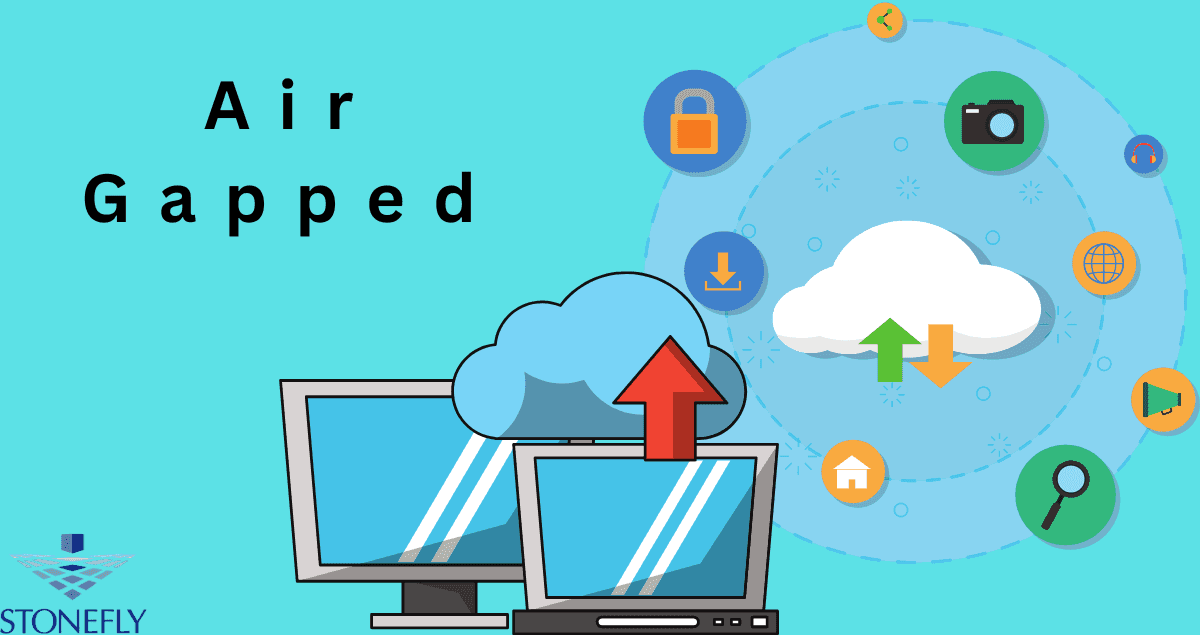
Safe Data: Air Gapped Explained
Data is important. But, what happens if it gets hacked? This is where Air Gapped comes in. Air Gapped is a way to keep data very safe. It uses strong protection methods to stop hackers from getting in.
Let's break it down and see how it works, why it's helpful, and where it's used.
What Is Air Gapped?
Air Gapped is a type of data protection. It means storing data on devices that are not connected to the internet or a network. Simply put, the device is "offline." Because it is offline, hackers cannot reach it. This type of storage is great for preventing cyberattacks.
Why Is It Called "Air Gapped"?
The term "air gap" comes from the idea of an empty space — or "air" — between the storage device and the internet. This gap prevents data from being accessed online.
How Does Air Gapped Work?
Air Gapped works by keeping stored data away from all networks. Here is how it is usually set up:
No Internet Connection
The storage device is always offline. It never connects to Wi-Fi or other networks.
Limited Access
Only certain people can access the Data. This is often done using physical keys, passwords, or both.
Copied Backups
Important data is often copied to the air gapped device. These backups are made using USB drives or other external devices.
Strict Rules
Companies set strict rules for how and when the device can be accessed. For example, no one can plug it into a networked system.
With these steps, the data stays protected and out of reach.
Key Benefits of Air Gapped
1. Maximum Security
The biggest benefit is security. Since the device is offline, hackers cannot reach it via the internet. Even if cybercriminals attack other systems, the data on the air gapped device will be safe.
2. Protection Against Ransomware
Ransomware is a big threat today. It locks files and demands money to release them. Air Gapped stops ransomware because it is disconnected. The malware cannot spread to the device.
3. No Internet? No Problem.
You don't rely on the internet for this kind of storage. This means it will work even during network failures or outages.
4. Reliable Backups
Air Gapped is an excellent place to store backups. If anything bad happens to your primary system, the data on the air gapped device will still be intact.
Where Is Air Gapped Used?
Government Agencies
Agencies often store sensitive data using Air Gapped. This level of security is needed to protect national secrets.
Financial Institutions
Banks and financial companies use it to guard customer information and financial records.
Healthcare Organizations
Hospitals and clinics use this storage to keep medical files safe from leaks or hacks.
Military Operations
The military also uses Air Gapped. It prevents hackers from gaining access to critical defense files.
The Challenges of Air Gapped
While Air Gapped is secure, it does come with some challenges:
Limited Access
Getting to the data isn’t as simple as logging into a computer. It takes time and effort.
Cost
Setting up air gapped systems can be expensive. Companies need to buy special equipment and train their staff.
Manual Processes
Since the device is offline, things like updates and backups must be done manually. This takes extra time.
Despite these challenges, many organizations believe the high security is worth it.
Conclusion
Air Gapped is one of the safest ways to protect data. It uses offline devices to make sure hackers cannot get in. This type of storage is perfect for protecting backups, fighting ransomware, and securing sensitive information.
Although it takes extra effort to set up and use, the benefits outweigh the challenges. Air Gapped proves that sometimes, going offline is the best way to stay secure.
FAQs
1. Can Air Gapped be hacked?
Hacking Air Gapped is almost impossible. Since it is offline, hackers cannot access it through the internet. However, physical theft or insider threats are still risks.
2. Is Air Gapped necessary for personal use?
For most people, Air Gapped is not necessary. But, if you have very sensitive data, it may be a good option. Examples include legal documents, private photos, or financial records.
Appreciate the creator